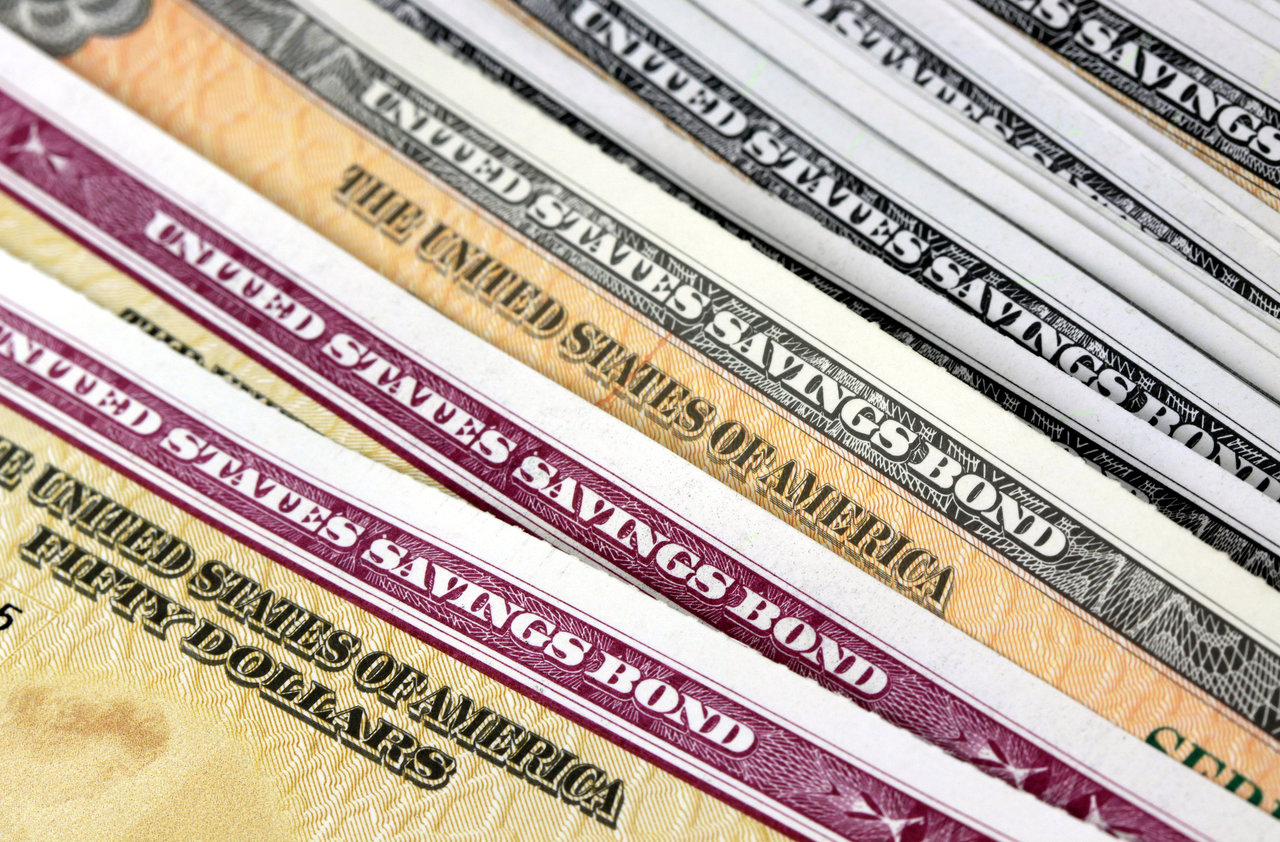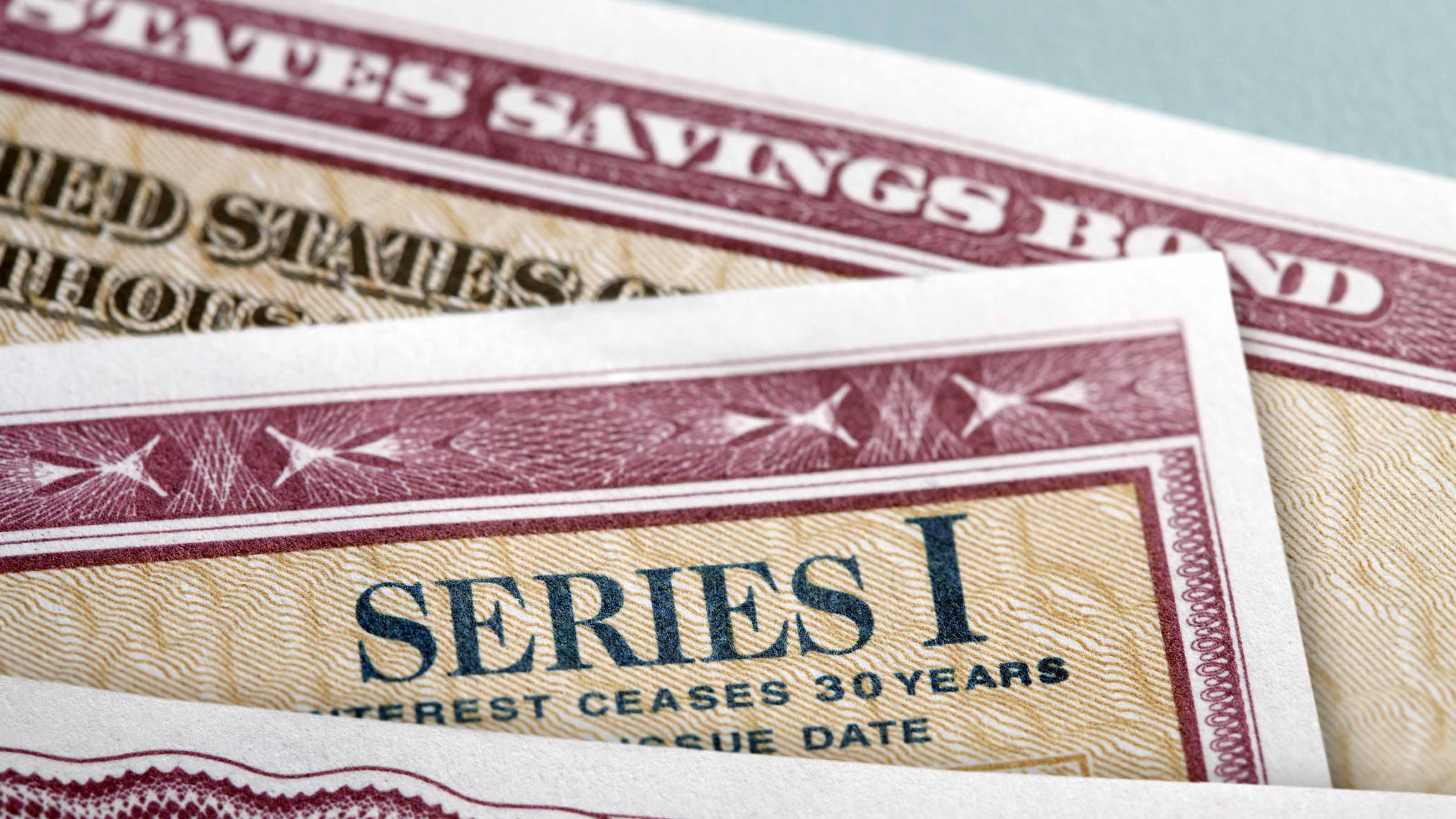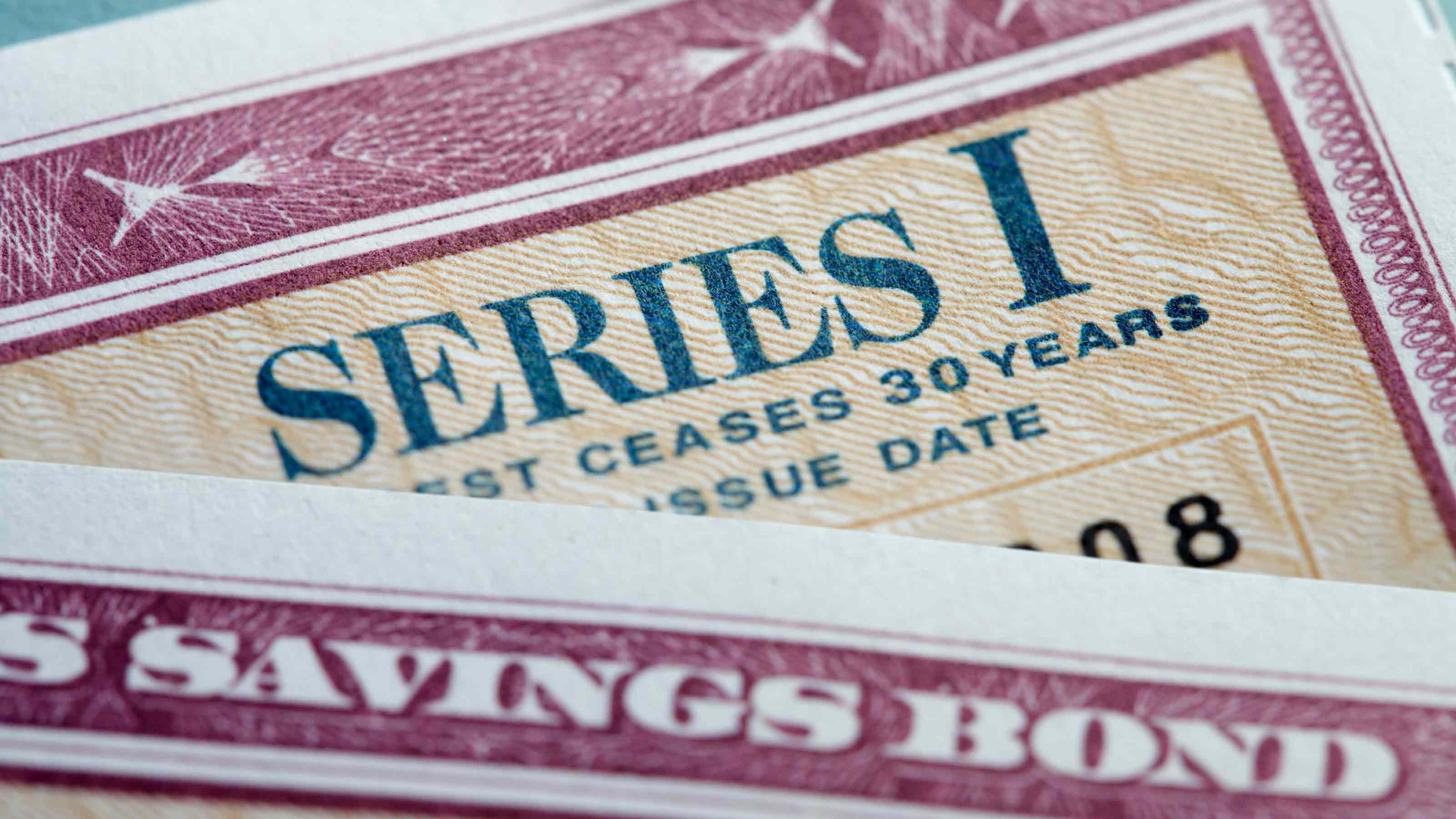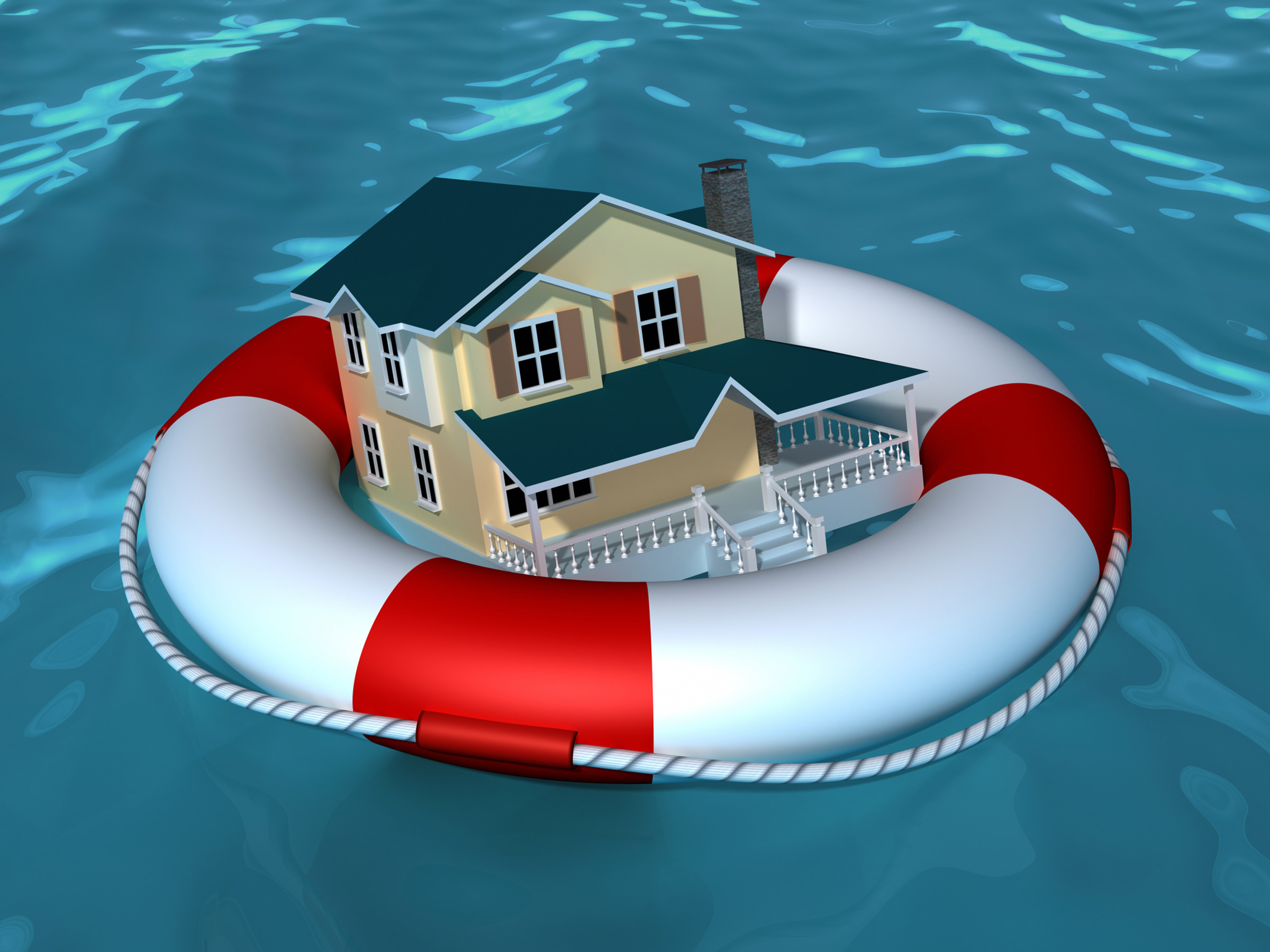Cash in These Savings Bonds That Have Stopped Earning Interest
Most savings bonds earn interest for 20 or 30 years. Here’s how to identify them so you can invest the money elsewhere.


Profit and prosper with the best of Kiplinger's advice on investing, taxes, retirement, personal finance and much more. Delivered daily. Enter your email in the box and click Sign Me Up.
You are now subscribed
Your newsletter sign-up was successful
Want to add more newsletters?

Delivered daily
Kiplinger Today
Profit and prosper with the best of Kiplinger's advice on investing, taxes, retirement, personal finance and much more delivered daily. Smart money moves start here.

Sent five days a week
Kiplinger A Step Ahead
Get practical help to make better financial decisions in your everyday life, from spending to savings on top deals.

Delivered daily
Kiplinger Closing Bell
Get today's biggest financial and investing headlines delivered to your inbox every day the U.S. stock market is open.

Sent twice a week
Kiplinger Adviser Intel
Financial pros across the country share best practices and fresh tactics to preserve and grow your wealth.

Delivered weekly
Kiplinger Tax Tips
Trim your federal and state tax bills with practical tax-planning and tax-cutting strategies.

Sent twice a week
Kiplinger Retirement Tips
Your twice-a-week guide to planning and enjoying a financially secure and richly rewarding retirement

Sent bimonthly.
Kiplinger Adviser Angle
Insights for advisers, wealth managers and other financial professionals.

Sent twice a week
Kiplinger Investing Weekly
Your twice-a-week roundup of promising stocks, funds, companies and industries you should consider, ones you should avoid, and why.

Sent weekly for six weeks
Kiplinger Invest for Retirement
Your step-by-step six-part series on how to invest for retirement, from devising a successful strategy to exactly which investments to choose.
I have some old savings bonds my parents gave me shortly after I was born. How can I find out if they’ve stopped earning interest?
Most savings bonds earn interest for 20 or 30 years. After that, they should be cashed in so you can invest the money elsewhere. If you have old E bonds or H bonds, they’ve all stopped earning interest—the last E bonds were issued in 1980 and the last H bonds were issued in 1979. EE bonds earn interest for 30 years, so any of those bonds purchased from the time they were introduced in January 1980 through July 1986 have stopped earning interest. HH bonds earn interest for 20 years, so any of those bonds purchased from January 1980 through July 1996 have stopped earning interest. I bonds, which were introduced in 1998, earn interest for 30 years.
For a list of savings bonds that have stopped earning interest, see the list at TreasuryDirect.gov. You can also use the Treasury Department’s Treasury Hunt tool to check on the status of Series E savings bonds issued in 1974 and later, and for all Series EE bonds. If you provide your Social Security number, the tool will let you know whether there are savings bonds issued in your name that are no longer earning interest. You’ll see instructions for cashing in the bond if it’s in your possession, or steps to take to file a claim if you have lost the bond.
From just $107.88 $24.99 for Kiplinger Personal Finance
Become a smarter, better informed investor. Subscribe from just $107.88 $24.99, plus get up to 4 Special Issues

Sign up for Kiplinger’s Free Newsletters
Profit and prosper with the best of expert advice on investing, taxes, retirement, personal finance and more - straight to your e-mail.
Profit and prosper with the best of expert advice - straight to your e-mail.
For more information about savings bonds, see Bond Basics: U.S. Savings Bonds. For more information about cashing in paper savings bonds or converting them to electronic form, see How to Cash In Savings Bonds.
Profit and prosper with the best of Kiplinger's advice on investing, taxes, retirement, personal finance and much more. Delivered daily. Enter your email in the box and click Sign Me Up.

As the "Ask Kim" columnist for Kiplinger's Personal Finance, Lankford receives hundreds of personal finance questions from readers every month. She is the author of Rescue Your Financial Life (McGraw-Hill, 2003), The Insurance Maze: How You Can Save Money on Insurance -- and Still Get the Coverage You Need (Kaplan, 2006), Kiplinger's Ask Kim for Money Smart Solutions (Kaplan, 2007) and The Kiplinger/BBB Personal Finance Guide for Military Families. She is frequently featured as a financial expert on television and radio, including NBC's Today Show, CNN, CNBC and National Public Radio.
-
 Nasdaq Leads a Rocky Risk-On Rally: Stock Market Today
Nasdaq Leads a Rocky Risk-On Rally: Stock Market TodayAnother worrying bout of late-session weakness couldn't take down the main equity indexes on Wednesday.
-
 Quiz: Do You Know How to Avoid the "Medigap Trap?"
Quiz: Do You Know How to Avoid the "Medigap Trap?"Quiz Test your basic knowledge of the "Medigap Trap" in our quick quiz.
-
 5 Top Tax-Efficient Mutual Funds for Smarter Investing
5 Top Tax-Efficient Mutual Funds for Smarter InvestingMutual funds are many things, but "tax-friendly" usually isn't one of them. These are the exceptions.
-
 How Are I Bonds Taxed? 8 Common Situations to Know
How Are I Bonds Taxed? 8 Common Situations to KnowBonds Series I U.S. savings bonds are a popular investment, but the federal income tax consequences are anything but straightforward.
-
 How Are I Bonds Taxed? Nine Common Situations
How Are I Bonds Taxed? Nine Common SituationsBonds Series I bonds are a popular investment that can help you save on taxes, but the federal income tax consequences can be complex.
-
 Bond Basics: U.S. Savings Bonds
Bond Basics: U.S. Savings Bondsinvesting U.S. savings bonds are a tax-advantaged way to save for higher education.
-
 Short-Term Investments to Protect Against Inflation and Market Volatility
Short-Term Investments to Protect Against Inflation and Market VolatilityRates on Series I savings bonds, T-bills and fixed annuities are all above historical averages and could serve investors well during turbulent times like these.
-
 What Are I-Bonds? Inflation Made Them Popular. What Now?
What Are I-Bonds? Inflation Made Them Popular. What Now?savings bonds Inflation has made Series I savings bonds, known as I-bonds, enormously popular with risk-averse investors. How do they work?
-
 PODCAST: Changes Coming to Flood Insurance with Laura Lightbody
PODCAST: Changes Coming to Flood Insurance with Laura LightbodyBecoming a Homeowner The National Flood Insurance Program is getting an overhaul that could send your rates up (or down). We dig into what's changing with this coverage that many have—and many more need. Also, a bond that pays over 7 percent, for now.
-
 What Grandparents Need to Know About Using Savings Bonds for a Grandchild’s Education
What Grandparents Need to Know About Using Savings Bonds for a Grandchild’s EducationTax Breaks It’s not easy, but grandparents can avoid a tax bill when redeeming savings bonds to pay for a grandchild’s college costs.
-
 How to Add Treasury Bonds, Bills and Notes to an IRA
How to Add Treasury Bonds, Bills and Notes to an IRAinvesting If you are wondering how to add Treasury bills, bonds and notes to an IRA, there are ways to do so.